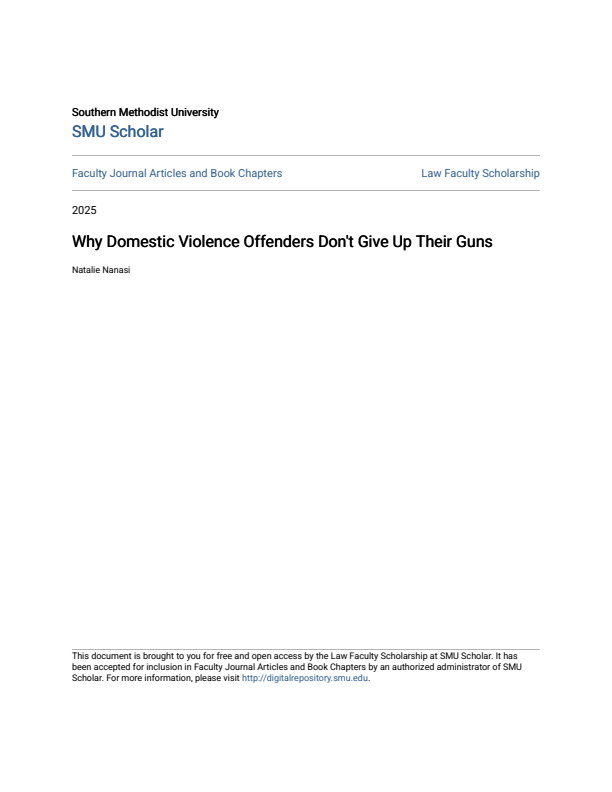By Natalie Nanasi
Perpetrators of intimate partner violence are barred by federal law and many states' laws from possessing firearms. While such prohibitions enjoy popular support, they are sporadically and inconsistently enforced, placing the lives of survivors at risk when offenders do not voluntarily comply. Many experts, including this author, have offered legal and policy solutions to increase the likelihood that perpetrators of domestic violence will either willingly relinquish their guns or otherwise be dispossessed of them. But these proposals may have been premature.
This Article is the first to take a step back and inquire why offenders do not surrender their firearms as ordered and what might incentivize them to do so. Understanding the worldviews and lived experiences of those subject to domestic violence gun prohibitions is a critical, and to-date ignored, first step to formulating viable solutions.
The Article is based on original empirical research conducted with perpetrators of intimate partner violence enrolled in a Batterer Intervention Program in Texas. The research reveals a range of novel findings based on both survey responses and in-depth interviews. The data show that most men subject to domestic violence firearm regulations are aware that they are prohibited possessors. They are reluctant to comply with the law, however, due to the atypically high levels of violence--including gun violence--they have experienced in their lifetimes, which has led them to conclude that firearms are necessary to protect themselves and their loved ones from harm. Respondents also identify closely with a stereotypically masculine identity that leads them to associate gun ownership with power and control; have strong (but not necessarily accurate) opinions about the Second Amendment; and are enmeshed in cultures where gun-carrying is the norm.
These insights about the men who are impacted by domestic violence gun regulations can help us promulgate laws and policies that offenders will be more inclined to comply with and are more likely to be enforced and enforceable. And importantly, successfully removing firearms from the hands of abusers can bring us one step closer to ending the epidemic of intimate partner violence gun fatalities in the United States.
36 Yale J. of L. & Feminism 51 (2025)



